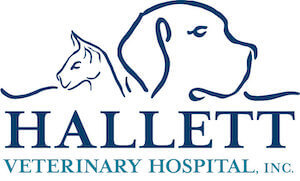At our veterinary hospital, we have received increasing numbers of questions regarding the feeding of raw food diets to pets. The rationale may be based on diets that are fed for extreme performance, such as racing greyhounds or sled team dogs. Another possible reason for the interest in raw food diets could be the perception of a "natural" diet, usually compared to what wild canids (think wolves) eat. The vast majority of family pets, and even hunting, field trial, or show dogs, do not require an extreme performance diet. In fact, raw food diets are inappropriate for most if not all family pets.
The primary concern relating to raw meat diets is the transmission of disease to people. Your dog's food can make you sick! Salmonella, E. coli, Campylobacter, and Cryptosporidium are some examples of infections that could make human family members ill. These can come directly from handling uncooked meat, or could infect the dog, which could then amplify and pass the infection to the family. If cats eat raw meat, they can expose family members to a protozoal infection called Toxoplasma. This is virtually impossible in a healthy indoor cat eating commercially prepared food.
A secondary concern is the health of the pet itself. The bacterial and protozoal infections mentioned above, as well as tapeworms, flukes, nematodes, tuberculosis, brucellosis, and numerous other parasites and infectious diseases await animals eating uncooked meat or animal products.
One published study (Canadian Veterinary Journal) demonstrated that 80% of raw food diets containing poultry were positive for salmonella, and 30% of the dogs eating these diets were passing salmonella in their feces. This was a short-term sampling. It is likely (though not proven) that a higher percentage of dogs would pass salmonella at some time during a longer period of monitoring. This particular study did not even assess campylobacter or E. coli contamination rates. A USDA report indicated that even human-food quality meats are frequently contaminated with salmonella, ranging from 3-5% in pork products and ground beef to 20% or higher in chicken. The products used in raw food diets for animals may have even higher levels of contamination, as they do not have to meet USDA human food standards.
The only theoretical benefit of feeding raw food to dogs is increased nutritional value, which is itself questionable. The foods commercially prepared by reputable companies are developed by PhD nutritionists, who compete fiercely with one another to develop the best products. Pets consuming these high quality diets and benefiting from modern parasite and infection control, live much longer on average than pets of previous generations. Wild wolves, eating the most natural diet imaginable, live from 6-9 years with few exceptions. Captive wolves, protected from trauma, starvation, and parasites or infection, often live from 12-20 years. This emphasizes the deleterious effect of parasites that every wild carnivore suffers. Sled dogs and racing dogs that eat raw meat are monitored and treated for the illnesses that such a diet confers. So, while the benefit of raw diet is unproven, the risks to health are inherent and well documented.
Our recommendation is to avoid raw meat diets in general. In families with children, elderly, or immune compromised members (cancer, chemotherapy, transplant, or HIV patients for example) it would be extremely risky to feed pets uncooked meat or animal products. Cooking would alleviate these concerns, but even then the diet may not offer any advantage over a high quality commercial diet for a given pet.
